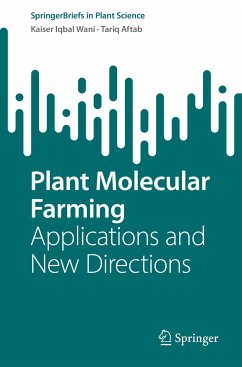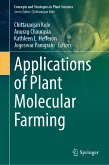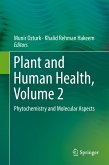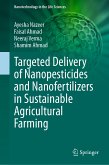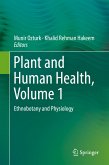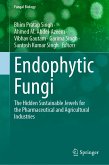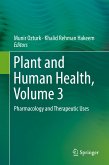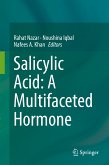40,95 €
40,95 €
inkl. MwSt.
Sofort per Download lieferbar

20 °P sammeln
40,95 €
Als Download kaufen

40,95 €
inkl. MwSt.
Sofort per Download lieferbar

20 °P sammeln
Jetzt verschenken
Alle Infos zum eBook verschenken
40,95 €
inkl. MwSt.
Sofort per Download lieferbar
Alle Infos zum eBook verschenken

20 °P sammeln
- Format: PDF
- Merkliste
- Auf die Merkliste
- Bewerten Bewerten
- Teilen
- Produkt teilen
- Produkterinnerung
- Produkterinnerung

Bitte loggen Sie sich zunächst in Ihr Kundenkonto ein oder registrieren Sie sich bei
bücher.de, um das eBook-Abo tolino select nutzen zu können.
Hier können Sie sich einloggen
Hier können Sie sich einloggen
Sie sind bereits eingeloggt. Klicken Sie auf 2. tolino select Abo, um fortzufahren.

Bitte loggen Sie sich zunächst in Ihr Kundenkonto ein oder registrieren Sie sich bei bücher.de, um das eBook-Abo tolino select nutzen zu können.
- Geräte: PC
- ohne Kopierschutz
- eBook Hilfe
- Größe: 2.75MB
Andere Kunden interessierten sich auch für
![Applications of Plant Molecular Farming (eBook, PDF) Applications of Plant Molecular Farming (eBook, PDF)]() Applications of Plant Molecular Farming (eBook, PDF)186,95 €
Applications of Plant Molecular Farming (eBook, PDF)186,95 €![Plant and Human Health, Volume 2 (eBook, PDF) Plant and Human Health, Volume 2 (eBook, PDF)]() Plant and Human Health, Volume 2 (eBook, PDF)161,95 €
Plant and Human Health, Volume 2 (eBook, PDF)161,95 €![Targeted Delivery of Nanopesticides and Nanofertilizers in Sustainable Agricultural Farming (eBook, PDF) Targeted Delivery of Nanopesticides and Nanofertilizers in Sustainable Agricultural Farming (eBook, PDF)]() Ayesha NazeerTargeted Delivery of Nanopesticides and Nanofertilizers in Sustainable Agricultural Farming (eBook, PDF)105,95 €
Ayesha NazeerTargeted Delivery of Nanopesticides and Nanofertilizers in Sustainable Agricultural Farming (eBook, PDF)105,95 €![Plant and Human Health, Volume 1 (eBook, PDF) Plant and Human Health, Volume 1 (eBook, PDF)]() Plant and Human Health, Volume 1 (eBook, PDF)161,95 €
Plant and Human Health, Volume 1 (eBook, PDF)161,95 €![Endophytic Fungi (eBook, PDF) Endophytic Fungi (eBook, PDF)]() Endophytic Fungi (eBook, PDF)129,95 €
Endophytic Fungi (eBook, PDF)129,95 €![Plant and Human Health, Volume 3 (eBook, PDF) Plant and Human Health, Volume 3 (eBook, PDF)]() Plant and Human Health, Volume 3 (eBook, PDF)113,95 €
Plant and Human Health, Volume 3 (eBook, PDF)113,95 €![Salicylic Acid: A Multifaceted Hormone (eBook, PDF) Salicylic Acid: A Multifaceted Hormone (eBook, PDF)]() Salicylic Acid: A Multifaceted Hormone (eBook, PDF)73,95 €
Salicylic Acid: A Multifaceted Hormone (eBook, PDF)73,95 €-
-
-
Produktdetails
- Verlag: Springer International Publishing
- Seitenzahl: 77
- Erscheinungstermin: 23. August 2022
- Englisch
- ISBN-13: 9783031127946
- Artikelnr.: 65441234
Dieser Download kann aus rechtlichen Gründen nur mit Rechnungsadresse in A, B, BG, CY, CZ, D, DK, EW, E, FIN, F, GR, HR, H, IRL, I, LT, L, LR, M, NL, PL, P, R, S, SLO, SK ausgeliefert werden.
- Herstellerkennzeichnung Die Herstellerinformationen sind derzeit nicht verfügbar.
Kaiser Iqbal Wani is currently working as a Senior Research Fellow at the Department of Botany, Aligarh Muslim University, Aligarh, India. He is a recipient of a prestigious national fellowship CSIR/UGC JRF to pursue his Ph.D. Besides, he has also qualified some other national-level exams like the Graduate Aptitude Test in Engineering (GATE) in life sciences and JKSET. His research is focused on molecular, proteomic, physiological, and biotechnological studies on medicinal plants under adverse environmental conditions. He has a number of research publications to his credit in peer-reviewed international journals. Besides, he has also a number of chapters in edited volumes with international publishers.
Tariq Aftab received his Ph.D. in the Department of Botany at Aligarh Muslim University, India, and is currently an Assistant Professor there. He is the recipient of a prestigious Leibniz-DAAD fellowship from Germany, Raman Fellowship from the Government of India, and Young Scientist Awards from the State Government of Uttar Pradesh (India) and Government of India. After completing his doctorate, he has worked as Research Fellow at National Bureau of Plant Genetic Resources, New Delhi and as Post-doctorate Fellow at Jamia Hamdard, New Delhi, India. Dr. Aftab also worked as Visiting Scientist at Leibniz Institute of Plant Genetics and Crop Plant Research (IPK), Gatersleben, Germany, and in the Department of Plant Biology, Michigan State University, USA. He is a member of various scientific associations from India and abroad. So far, he has edited 12 books with international publishers, including Elsevier Inc., Springer Nature and CRC Press (Taylor & Francis Group), co-authored several book chapters, and published over 60 research articles in peer-reviewed international journals. His research interests include physiological, proteomic, and molecular studies of medicinal and crop plants in challenging environmental conditions.
Tariq Aftab received his Ph.D. in the Department of Botany at Aligarh Muslim University, India, and is currently an Assistant Professor there. He is the recipient of a prestigious Leibniz-DAAD fellowship from Germany, Raman Fellowship from the Government of India, and Young Scientist Awards from the State Government of Uttar Pradesh (India) and Government of India. After completing his doctorate, he has worked as Research Fellow at National Bureau of Plant Genetic Resources, New Delhi and as Post-doctorate Fellow at Jamia Hamdard, New Delhi, India. Dr. Aftab also worked as Visiting Scientist at Leibniz Institute of Plant Genetics and Crop Plant Research (IPK), Gatersleben, Germany, and in the Department of Plant Biology, Michigan State University, USA. He is a member of various scientific associations from India and abroad. So far, he has edited 12 books with international publishers, including Elsevier Inc., Springer Nature and CRC Press (Taylor & Francis Group), co-authored several book chapters, and published over 60 research articles in peer-reviewed international journals. His research interests include physiological, proteomic, and molecular studies of medicinal and crop plants in challenging environmental conditions.
Chapter. 1. Molecular Farming in Plants: Introduction and Applications.- Chapter. 2. Tools and Techniques Used in Plant Molecular Farming.- Chapter. 3. Production of plant natural products in heterologous microbial species.- Chapter. 4. Sustainable Manufacturing of Vaccines, Antibodies, and other Pharmaceuticals.- Chapter. 5. Limitations, Biosafety, ethics, regulatory issues in molecular farming in plants.- Chapter. 6. Conclusion and Perspectives.
Chapter. 1. Molecular Farming in Plants: Introduction and Applications.- Chapter. 2. Tools and Techniques Used in Plant Molecular Farming.- Chapter. 3. Production of plant natural products in heterologous microbial species.- Chapter. 4. Sustainable Manufacturing of Vaccines, Antibodies, and other Pharmaceuticals.- Chapter. 5. Limitations, Biosafety, ethics, regulatory issues in molecular farming in plants.- Chapter. 6. Conclusion and Perspectives.
